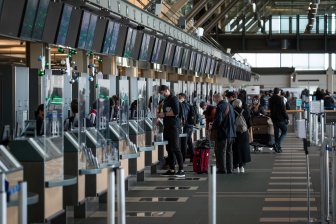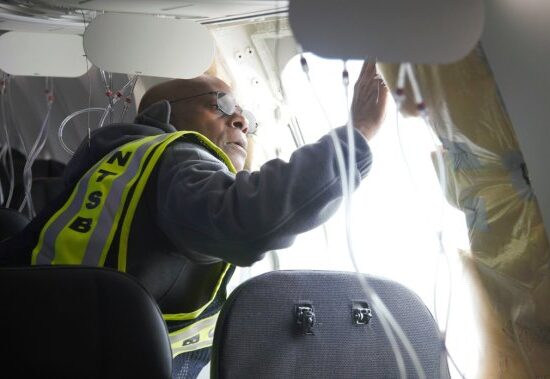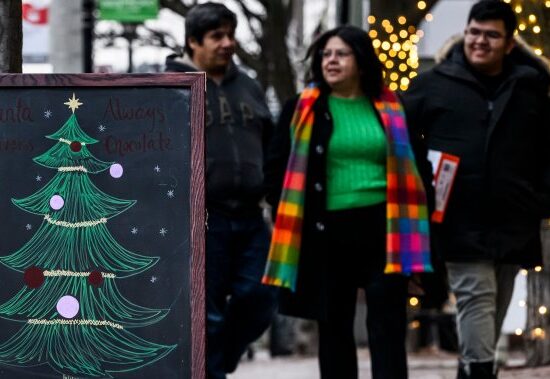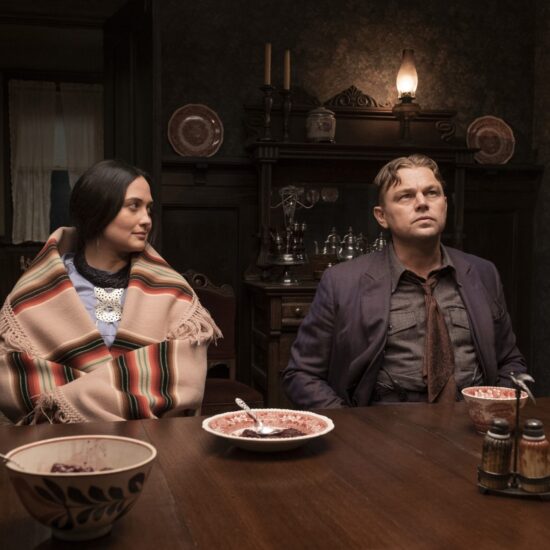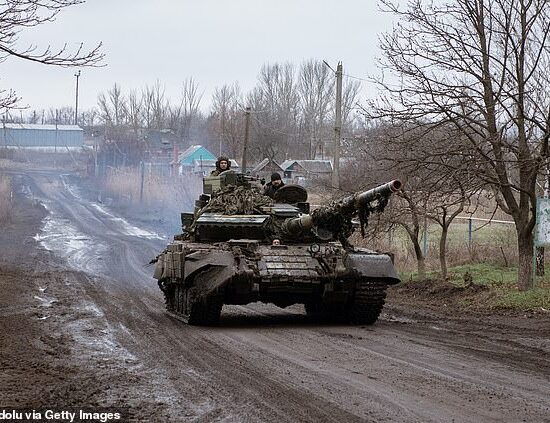
As Russian forces continue their war on Ukraine, the risks of human trafficking for Ukrainian women and children have increased. Millions fleeing their homes from the war-torn nation, are vulnerable, say experts.
“For predators and human traffickers, the war in Ukraine is not a tragedy,” the United Nations‘ secretary general, António Guterres, said on March 16. “It’s an opportunity. And women and children are the targets.”
On April 18, the Ukrainian parliament commissioner for human rights released a report saying the Russian military has illegally removed 13 orphans from Mariupol to Russia.
“Ukrainian children deported to Russia are placed in the care of Russian citizens, which is a crime that falls under the definition of human trafficking under international law,” the report says.
Even before the Russian invasion, two out of every five vulnerable children in Ukraine wee at risk of falling victims to human trafficking, according to a 2016 report from the International Organization for Migration.
“People posing as helpers are picking up these women and children, and then they’re just, for lack of a better phrase, disappearing into some violent abyss,” Kerri Cull, author and human trafficking detection specialist, told Global News from St. John’s, Newfoundland.
“It’s going to have very long term debilitating effects for the women and children and the families of these individuals,” she said.
People, mainly women and children, pass through Przemysl train station after fleeing from war-torn Ukraine on April 09, 2022 in Przemysl, Poland. According to the United Nations, since Russia invaded Ukraine on February 24 upward of 10 million people have been displaced and at least 1,100 civilians have been killed.
(Photo by Jeff J Mitchell/Getty Images)
More than 500 unaccompanied children were identified crossing Ukraine into Romania from Feb. 24 to March 17, according to UNICEF.
“The war in Ukraine is leading to massive displacement and refugee flows — conditions that could lead to a significant spike in human trafficking and an acute child protection crisis,” said Afshan Khan, UNICEF’s Regional Director for Europe and Central Asia, in a report from March 19.
“Displaced children are extremely vulnerable to being separated from their families, exploited, and trafficked. They need governments in the region to step up and put measures in place to keep them safe.”
According to the executive director of the UN’s gender agency, Sima Bahous, increasing reports of human trafficking of women and children raised “red flags” over a potential protection crisis.
“This trauma risks destroying a generation,” she said during a UN security council meeting on April 11.

But while forces are busy fighting the invasion, human trafficking victims will likely be left behind, according to Maria Dmytrieva, a women’s rights activist, who spoke to Global News from Ukraine.
“In this situation, not a lot of the police force can be allocated to (fight) trafficking,” said Dmytrieva. After Russian shelling, she fled from her hometown in Ukraine to the other side of the country. Dmytrieva has been working as a women’s rights activist for 25 years. She’s currently a program director at the non-profit organization, Democracy Development Centre.
Maria Dmytrieva.
Supplied Photo.
“The problem is that these women fled from hostilities. They have been on the road for days. They are stressed out. They don’t know what the future holds,” she said.
Dmytrieva said posters have been mounted between bordering countries to warn people of the threat of human trafficking. “You cannot reasonably expect these women will be in any condition to assess the risks.”
A volunteer at the international humanitarian group Save the Children sits next to a banner giving advice on personal safety at the Romanian-Ukrainian border, in Siret, Romania, Monday, March 7, 2022. As millions of women and children flee across Ukraine’s borders in the face of Russian aggression, concerns are growing over how to protect the most vulnerable refugees from being targeted by human traffickers or becoming victims of other forms of exploitation.
(AP Photo/Andreea Alexandru)
Demand for explicit Ukrainian videos rising
And not just human trafficking, according to Dmytrieva, but the demand for explicit porno graphic videos of Ukrainian women have also skyrocketed since the start of the invasion.
“We know that the demand for videos with Ukrainian women are now trending on porn resources. And we know that some of those videos are tagged ‘Ukrainian girl’ that depict adults who look like teenagers, or actual teenagers,” she said.
Earlier on in Russia’s invasion during the beginning of March, terms such as “Ukrainian porn,” “war porn” and “Ukrainian girls,” became trending searches on PornHub, according to Exodus Cry, a organization committed to internationally fighting sexual exploitation.
On Google Trends, “Ukrainian Girls Reddit” has also had a huge spike in searches since Feb.
“Nobody tells these young women what they are risking, and nobody tells the society that men who are exposed to porn all the time become more violent towards women,” Dmytrieva said.
This dangerous consumption of women, whether through an online resource or human trafficking are closely related, she added.
While working in Ukraine during the invasion, Dmytrieva has seen an “overwhelming” amount of support from other women around the world.
“They’re sending money. They’re sending support. They are sending kind words. They are sending morning-after pills and menstrual cups,” she said, expressing gratitude.
People, mainly women and children, pass through Przemysl train station after fleeing from war-torn Ukraine on April 07, 2022 in Przemysl, Poland. According to the United Nations, since Russia invaded Ukraine on February 24 upward of 10 million people have been displaced and at least 1,100 civilians have been killed.
(Photo by Jeff J Mitchell/Getty Images)
To help solve the human trafficking crisis, Linda MacDonald, co-founder of Persons Against Non-State Torture, would like to see the Nordic model become law in Ukraine.
“Anytime there’s any kind of chaos, human traffickers move in because they’re deliberate hunters. They move in when there’s a tsunami, when there’s an earthquake, when there’s chaos, war. It’s just part of their MO.” Linda MacDonald, co-founder of Persons Against Non-State Torture, told Global News from Truro, Nova Scotia.
“Sexualized exploitation and human trafficking happens in any kind of a large gathering or chaos, and war is one of them,” she explained.
The Nordic model was first adapted in Sweden in 1999, according to the Native Women’s Association of Canada. The approach focuses on criminalizing the purchase of sex and decriminalizing individuals working in prostitution.

“What it does is target the demand, which means it targets the men who buy the women and girls and arrests them,” MacDonald said.
“Then, if there’s no demand, the traffickers can’t traffic anyone because they’re too worried about being caught and charged.”
Jeanne Sarson, MacDonald’s fellow co-founder at Persons Against Non-State Torture, also advocates for the Nordic model.
Read more:
Ukraine will quit talks if Russia holds ‘pseudo-referendums’ in occupied areas: Zelenskyy
“That’s a deterrent. I think in any country, if they’re looking at looking at demand, there’s a need to name perpetrators so that they don’t become invisible, that it becomes real,” Sarson said. “This is a real human being that’s doing these actions.”
It’s also important to call human trafficking for what it is — and not sex trafficking, according to Sarson, who has co-authored a book with MacDonald, entitled Women Unsilenced: Our Refusal to Let Torturer-Traffickers Win. It explores stories of women and girls who have been victims.
“Human trafficking is often called sex trafficking and that in itself is a trap, a dangerous one,” she said. “There’s no limitation to the cruelty they might inflict.”
“Education, even in war, is really important,” MacDonald added.

© 2022 Global News, a division of Corus Entertainment Inc.








